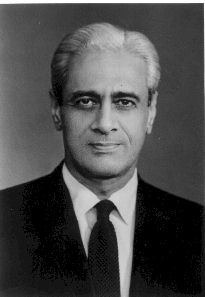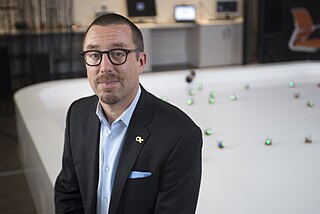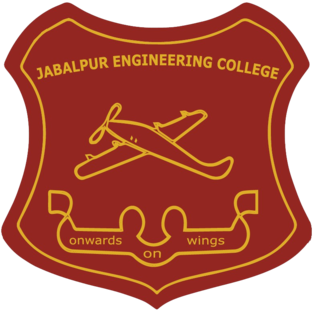Related Research Articles

The Indian Institute of Science (IISc) is a public, deemed, research university for higher education and research in science, engineering, design, and management. It is located in the southern Indian city of Bangalore, Karnataka. The institute was established in 1909 with active support from Jamsetji Tata and thus is also locally known as the "Tata Institute". It is ranked among the most prestigious academic institutions in India and has the highest citation-per-faculty among all the universities in the world. It was granted a deemed university status in 1958 and recognized as an Institute of Eminence in 2018.

Satish Dhawan was an Indian mathematician and aerospace engineer, widely regarded as the father of experimental fluid dynamics research in India. Born in Srinagar, Dhawan was educated in India and further on in United States. Dhawan was one of the most eminent researchers in the field of turbulence and boundary layers, leading the successful and indigenous development of the Indian space programme. He succeeded M. G. K. Menon, as the third chairman of the Indian Space Research Organisation (ISRO) in 1972. The second launch pad of ISRO, Satish Dhawan space centre is named after him. He is greatly regarded as the man behind A. P. J. Abdul Kalam
NUST School of Electrical Engineering and Computer Science (NUST-SEECS), formerly NUST Institute of Information Technology, is a constituent school in Islamabad, Pakistan. It was created on a self-financed basis in April 1999 as a constituent college of National University of Sciences and Technology, Pakistan (NUST). The formation of NUST was prompted by the growing need for high-caliber IT instruction in the country and the necessity for the institution to establish its own IT division.

Bangalore Institute of Technology is an autonomous engineering college offering undergraduate and postgraduate engineering courses, affiliated to the Visvesvaraya Technological University, Belgaum located in Bangalore. The institution came into being in August, 1979 under the auspices of Rajya Vokkaligara Sangha, Bengaluru.
The School of Engineering and Applied Science (SEAS) at the George Washington University in Washington, D.C. is a technical school which specializes in engineering, technology, communications, and transportation. The school is located on the main campus of the George Washington University and offers both undergraduate and graduate programs.

The Khajeh Nasir Toosi University of Technology is a public research university in Tehran, Iran. It is named after medieval Persian scholar Khajeh Nasir Toosi. The university is considered one of the most prestigious institutions of higher education in Iran. Acceptance to the university is highly competitive, entrance to undergraduate and graduate programs typically requires scoring among the top 1% of students in the Iranian University Entrance Exam.

Anurag Kumar was the Director of the Indian Institute of Science at Bangalore, India from 2014–2020. He is a professor at the Department of Electrical Communication Engineering, and has served as the Chairperson of the Electrical Sciences Division at the Indian Institute of Science, before being appointed as the Director in 2014.
The Institute for Robotics and Intelligent Machines (IRIM@GT) is an interdisciplinary research unit at the Georgia Institute of Technology. The center was launched May, 2006, and consists of researchers from the School of Interactive Computing in the College of Computing, College of Engineering, and Georgia Tech Research Institute. IRIM@GT currently offers a Ph.D. program in robotics, the first truly multi-disciplinary program in the country after the one of Carnegie Mellon University.

Magnus B. Egerstedt is a Swedish-American roboticist who is the Dean of the Henry Samueli School of Engineering at the University of California, Irvine. He was formerly the Steve C. Chaddick School Chair and Professor at the School of Electrical and Computer Engineering, Georgia Institute of Technology.
The Guidance, Control and Decision Systems Laboratory (GCDSL) is situated in the Department of Aerospace Engineering at the Indian Institute of Science in Bangalore, India. The Mobile Robotics Laboratory (MRL) is its experimental division. They are headed by Dr. Debasish Ghose, Full Professor.

Jabalpur Engineering College (JEC) is an institute located in Jabalpur, Madhya Pradesh, India. It is the oldest technical institution in central India and the 15th-oldest in India. It is the first institute of India to have started the Electronics & Telecommunication engineering education in the country, and also the last educational institution to be set up by the British in India. The Government of Madhya Pradesh is in the process of converting it into a Technical University.
Thekkethil Kochandy Alex is an Indian space scientist. He was the director of the ISRO Satellite Centre (ISAC) of Indian Space Research Organisation (ISRO) (2008–2012) and Member, Space Commission. He specialized in electro-optic systems and satellite technology. Starting with the first Indian satellite Aryabhata, he has been responsible for the sensor systems in all the Indian satellites. Under his leadership the Laboratory for Electro Optics Systems (LEOS) was established in 1993 and from the inception he was its director till 2008. He was conferred "Dr. Vikram Sarabhai Distinguished Professorship" in 2011.
Naomi Ehrich Leonard is the Edwin S. Wilsey Professor of Mechanical and Aerospace Engineering at Princeton University. She is the director of the Princeton Council on Science and Technology and an associated faculty member in the Program in Applied & Computational Mathematics, Princeton Neuroscience Institute, and the Program in Quantitative and Computational Biology. She is the founding editor of the Annual Review of Control, Robotics, and Autonomous Systems.

Professor Bhagavatula Dattaguru is an Indian engineer and academic. He has received several awards, including the Padma Shri Award, India's fourth highest civilian honour in 2005 in the field of science and engineering.
Radhika Nagpal is an Indian-American computer scientist and researcher in the fields of self-organising computer systems, biologically-inspired robotics, and biological multi-agent systems. She is the Augustine Professor in Engineering in the Departments of Mechanical and Aerospace Engineering and Computer Science at Princeton University. Formerly, she was the Fred Kavli Professor of Computer Science at Harvard University and the Harvard School of Engineering and Applied Sciences. In 2017, Nagpal co-founded a robotics company under the name of Root Robotics. This educational company works to create many different opportunities for those unable to code to learn how.

Bulusu Lakshmana Deekshatulu is an Indian academic who has made important contributions to Digital Image Processing and Control Theory. He is a Fellow of The World Academy of Sciences, Fellow of Indian National Science Academy, The National Academy of Sciences, India, Indian Academy of Sciences, Indian National Academy of Engineering, National Academy of Agricultural Sciences, and IEEE.

Nikolaus Correll is a roboticist and an associate professor at the University of Colorado at Boulder in the Department of Computer Science with courtesy appointments in the departments of Aerospace, Electrical and Materials Engineering. Nikolaus is the faculty director of the Interdisciplinary Research Theme on Multi-functional Materials at the College of Engineering and Applied Science, and the founder and CTO of Robotic Materials Inc.

Vaidyeswaran Rajaraman is an Indian engineer, academic and writer, known for his pioneering efforts in the field of Computer Science Education in India. He is credited with the establishment of the first academic program in computer science in India, which he helped initiate at the Indian Institute of Technology, Kanpur in 1965. An elected fellow of all the Indian science academies, he is a recipient of Shanti Swarup Bhatnagar Prize, the highest Indian award in Science and Technology category for young scientists and several other honors including Om Prakash Bhasin Award and Homi Bhabha Prize. The Government of India awarded him the third highest civilian honor of the Padma Bhushan, in 1998, for his contributions to science.

Information engineering is the engineering discipline that deals with the generation, distribution, analysis, and use of information, data, and knowledge in systems. The field first became identifiable in the early 21st century.
References
- 1 2 3 4 "Debasish Ghose". www.aero.iisc.in. Aerospace Engineering, Indian Institute of Science, Bangalore. Retrieved 10 May 2019.
- ↑ Luptonga (14 June 2011), Operating multiple Unmanned Aerial Vehicle [UAV] through co-operative control , retrieved 16 November 2018
- ↑ "Debasish Ghose". Google Scholar . Retrieved 27 June 2018.
- 1 2 Kaipa, Krishnanand N.; Ghose, Debasish (2008). "Glowworm swarm optimization for simultaneous capture of multiple local optima of multimodal functions". Swarm Intelligence. 3 (2): 87–124. doi:10.1007/s11721-008-0021-5. S2CID 9539488.
- ↑ Veeravalli, Bharadwaj; Ghose, Debasish; Robertazzi, Thomas G. (2003). "Divisible Load Theory: A New Paradigm for Load Scheduling in Distributed Systems". Cluster Computing. 6: 7–17. doi:10.1023/A:1020958815308. S2CID 8840753.
- ↑ "Faculty Participants". Robert Bosch Centre for Cyber-Physical Systems. 10 April 2017. Archived from the original on 17 November 2018. Retrieved 16 November 2018.
- ↑ "EADS, IISc ally for aerospace research". Deccan Herald . 25 October 2013. Retrieved 27 June 2018.
- ↑ Chakravarthy, Animesh; Ghose, Debasish (1998). "Obstacle avoidance in a dynamic environment: a collision cone approach" (PDF). IEEE Transactions on Systems, Man, and Cybernetics - Part A: Systems and Humans. 28 (5): 562–574. doi:10.1109/3468.709600. S2CID 13010831.
- ↑ "Mohamed Bin Zayed International Robotics Challenge (MBZIRC)". Robert Bosch Centre for Cyber-Physical Systems. 8 August 2018. Archived from the original on 17 November 2018. Retrieved 16 November 2018.